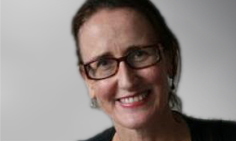WHEN I worked on a consumer health magazine some years ago, we used to raise an eyebrow at the conflicting health claims that came across our desks.
This week’s miracle exercise regimen for building core strength could be next week’s certain path to injury. Today’s super food might turn up on tomorrow’s list of top 10 foods to avoid, and vice versa.
It could be entertaining to watch the trajectory from elixir to ignominy, and sometimes back again, but the shifting messages perhaps had more serious implications.
US journalism academic Dr Rebekah Nagler has spent some time looking at apparently contradictory health messages delivered by the media and how these may affect health behaviours.
A recent study looked at the possible impact of contradictory messages about nutrition.
The paper focused on four particular nutrition topics that have been particularly prone to conflicting media stories — red wine and other alcohol; fish; coffee; and vitamins or other nutritional supplements.
How is the average consumer supposed to make sense of, for example, two news stories with one linking red wine consumption to improved cardiovascular health, and the other to increased breast cancer risk?
Or the myriad claims about contemporary society’s favourite drug, coffee, which apparently delays dementia, kills you, makes you live longer, increases cancer risk, reduces cancer risk, and so on. (For an analysis of some of the wilder media stories making claims about coffee, see this article on HealthNewsReview.org.)
Dr Nagler’s analysis of survey results from 631 Americans found 72% of respondents reported medium- or high-level exposure to contradictory information across the four selected topics.
Perhaps unsurprisingly, those who were most exposed to contradictory messages also reported greater confusion about nutrition in general.
“Exposure to conflicting information on the health benefits and risks of, for example, wine, fish, and coffee consumption was associated with confusion about what foods are best to eat and the belief that nutrition scientists keep changing their minds”, Dr Nagler writes.
Confusion, in turn, was associated with higher levels of “nutrition backlash”, she writes, possibly leading people “to doubt nutrition and health recommendations more generally — including those that are not surrounded by conflict and controversy [such as] fruit/vegetable consumption, exercise”.
This could undermine public health interventions such as healthy eating campaigns, she suggests.
The implications may be even broader. Conflicting messages about cancer screening come to mind, or the possible conflict between skin cancer prevention messages and research into the health benefits of vitamin D.
The real problem here is not the research, but the lack of scientific literacy in some sections of the media and in the general population.
If “Coffee kills” or “Coffee saves lives” stories reveal anything, it’s that there’s precious little understanding of the difference between association and causation among some media reporters.
Compounding the problem is our desire for clear messages, for the eradication of uncertainty, which makes us vulnerable to these kinds of over-simplified claims.
Red wine could help to promote cardiovascular health and, at the same time, increase breast cancer risk.
Things don’t have to be all good or all bad, and the nature of scientific evidence is that it changes over time as new information comes to hand.
Given that uncertainty will always be with us, the most sensible health message of all is probably that old axiom, “all things in moderation”.
Jane McCredie is a Sydney-based science and medicine writer.

 more_vert
more_vert
Why are some foods either wonderful or suddenly terrible? The reality is that they are generally neither – they are foods, not medications, and they have mixed effects on our physiology and health risks. As Rosemary Stanton always says, we eat foods, not nutrients, and we should combine variety with moderation. Butter, tea and coffee can all be part of a well-balanced diet if used in moderation – they are neither ”poisons” nor ”superfoods”. The simplistic messages are responses to a desire for simple answers from consumers, exploited by marketers and shysters.
Foods and drinks that supposedly are good for you, then bad for you, then good for you again bedevil the nutrition and diet industries. Butter, tea and coffee are good examples. The medical and scientific professions are often culpable as well; Who can forget a scentific paper, published in a reputable journal around twenty years ago, that linked regular coffee drinking to pancreatic cancer but was discredited when it was realised that if you took the cigarette smokers ( who frequently also drank coffee ) out of the equation the rates were the same.
There is a tendency to want to get a good ‘story’ in print, and the newspaper editors pounce.Confusing and conflicting advice, whatever is ‘fashionable’ at the time, damages the credibility of the good and accurate messages out there.
A major problem with a lot of research is that the people who are consuming a food or products are not considered. A good example is the neglect of Mediterranean people and their lifestyle when looking at their diets. Mediterraneans eat healthy foods but also unhealthy foods but the big family support etc is likely to be more important than the food that they eat.
While confusing and conflicting advice inundates the public in general, it is even worse for the newly pregnant woman who has not only her own health to worry about, but her baby’s as well. In the midst of all the hype are some genuine health risks and these become obscured by all the rest of the peer, family and media pressure. Pregnancy, as much as early chidhood, is a time when nutrition is very important – both to include the essentials and to leave out the harmful. We need to do a better job of giving good advice.